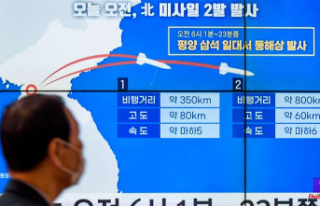The protests in Iran and the police violence there have consequences for Iranian asylum seekers who live in North Rhine-Westphalia - they don't have to expect to be deported back home for the time being. However, it is unclear whether there will also be a nationwide regulation.
North Rhine-Westphalia stops deportations to Iran with immediate effect. The North Rhine-Westphalian Minister for Integration and Refugees, Josefine Paul, announced in the evening that the current demonstrations in Iran and the harsh actions of the Iranian security forces clearly showed how dramatic the current human rights situation in Iran is. Against this background, it is "irresponsible to deport people there at the moment," said the Green politician. NRW is therefore suspending returns to Iran until further notice.
North Rhine-Westphalia "stands in solidarity with the Iranians who fight for women's rights, for freedom of expression and freedom of assembly and against torture and the death penalty," said the minister in Düsseldorf. But NRW is also continuing to rely on a nationwide solution, she emphasized. She expects the federal government to quickly decide on a coordinated approach with the states.
Lower Saxony announced on Thursday that it would no longer deport people to Iran. "The human rights situation is catastrophic and the situation is becoming more dramatic every day," said Interior Minister Boris Pistorius from the SPD.
Bavaria's interior minister Joachim Herrmann announced that the conference of interior ministers would probably deal with suspending deportations to Iran. As chairman of the conference, the CSU politician was reacting to a corresponding request from Federal Interior Minister Nancy Faeser. According to the website of the conference of interior ministers, the next meeting will be on November 30th.
The current protests were triggered by the death of the young Kurd Mahsa Amini. The 22-year-old died in Iran on September 16 after being arrested by vice squads in Tehran three days earlier on charges of not wearing her headscarf in accordance with regulations. According to human rights organizations, around 150 people have been killed in Iran since then during the violent crackdown on the demonstrators by the authorities.












